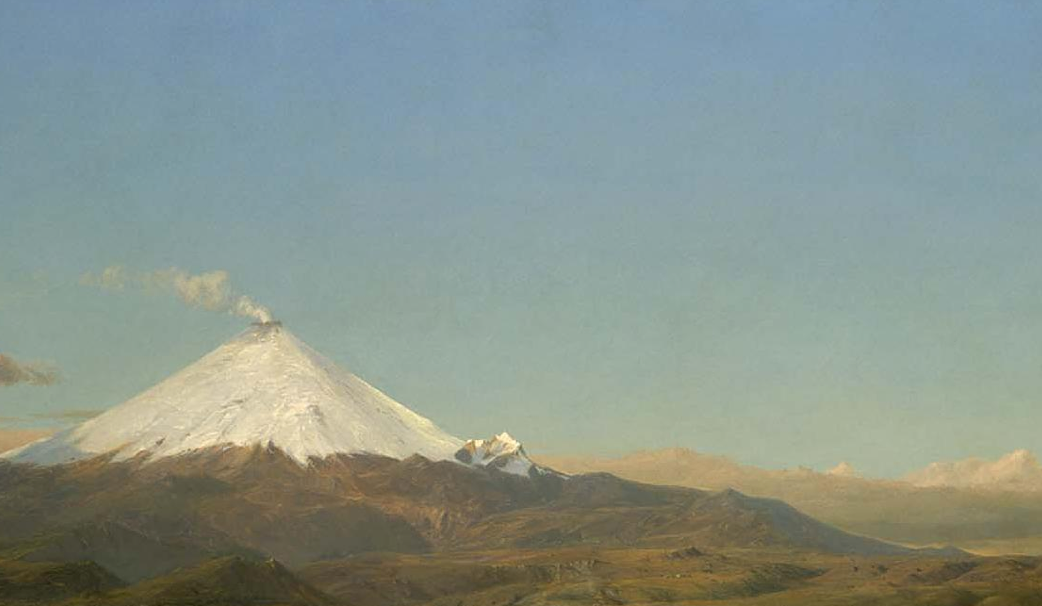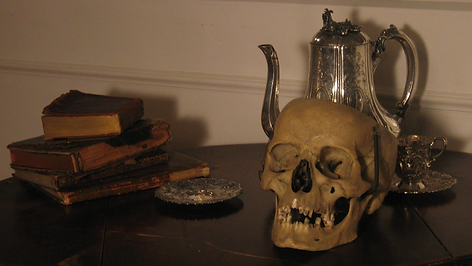
Selections from The Merchant’s Polylex, 18th Edition
Irlsbaad Printers’ Cooperative Society, Etherhorde, Western Solar Year 959
BUSTARD TREATMENT, THE: Old sailors’ remedy for lice or fleas. Do not attempt without medical oversight! Do not attempt if sunburned! The core ingredients are Mereldín peppers (the small, blood-red variety, a.k.a. ‘cat’s-fang peppers’), lemon rind and saltpeter. To this may be added a small quantity of thoroughly dried cicadas or stiltworms, if available. Grind all ingredients together to a fine dust. Place in an oilskin bag, together with your hammock. Seal and agitate. Protect eyes, ears and nose with a clean bandana. Remove hammock from bag and (with the aid of one’s shipmates) wrap it around oneself for 3 to 6 hours. Wash hammock, bag and self with seawater. Repeat if desired.
CHASMAMANCER: A mage or sorcerer, able to predict the future by studying the behavior of earthquakes and volcanoes.
FENGAS: The natural exhalations of two great swamps, the Oolmarsh and Tressek Tarn, collected and burned in lamps of the more progressive cities of Arqual. Deadly if inhaled in a closed room. The Great Cove Fire of 803 was started by a Fengas explosion, and the gang of criminals known today as the Burnscove Boys traces its origins to the heroes who fought the blaze.
GORGONOTHS: The Doomsday Worms. Thoroughly ludicrous mythological beasts said to lie dormant beneath the ice of the uttermost north. The Lay of Oriud describes them as ‘grey hulkers of the world’s corpse, old cavern-mawed enders of All.’ As the citation implies, they are considered large enough to wallow across the oceans and ‘feast on vale and nation, as the plow consumeth the field.’ Need we continue?
GURISHAL, ISLE OF: WARNING: SHUN ALL CONTACT! ACCEPT NO ORDERS, TENDER, TRADE GOODS, PASSENGERS, FAVOURS OR ADVICE CONNECTED WITH THIS ISLAND. A cold, wounded corner of NW Alifros, the Mzithrin’s answer to Licherog. Swept by three punishing seasons of gales every year, Gurishal is home, since the defeat of the Shaggat Ness, to some 90,000 of his followers. They are said to cluster mainly on the northeast plateau, where the White Fleet overseas a minimal and tightly regulated trade with the Urlanx Isles and the Mzithrin heartland. In fact very little is known of these exiles, who call themselves the Nessarim [‘God’s Children’], but rumours describe a living hell, where the plains are barren and the mountains cruel, where men live and die at the whim of a heartless Intercessional Council, and peasants in danger of outright starvation erect vast monuments in the desert to their departed God-King, and thought itself is monitored by occult and sinister means.
Few are the legitimate transactions within our Empire of Arqual that have any connection whatsoever with the Mzithrin—indeed they are limited to a handful of independent companies in the Crownless Lands—but we must emphasize that the crown tolerates NO connection, however slight or incidental, between Arqualis and the dwellers on that isle of pain.
GREBEL: A liquor perfected by slaves in the Pellurids, distilled from the vine of the wild sea-grape and matured in vats with green coconuts, molasses and psychotropic herbs. Its chief benefit is rapid and total inebriation, often accompanied by vertigo, spasms, fainting spells and the like. Intense hallucinations and fear are also frequent side effects.
It pains us to related that this vile, viscous stuff is to be found among the sailors of many an Arquali ship, often among soaps and varnishes, the better to fool the officers. However, when diluted 100:1 and spiked with cloves and jasmine, grebel forms the basis of Quinal, an after-dinner drink served in the wealthiest clubs and parlours of the Empire.
NUNEKKAM: A marginal race of sentient beings, destined (like most others) for decline. Quite unconcerned with humans except as trading partners, they dwell in port colonies, on boats made unmistakable by the pretty, egg-like porcelain domes. Shore-huggers, they are neither large nor strong enough to brave any seas but the Nelu Peren. They are not, as some believe, distant cousins to the Flikkermen; autopsies reveal no similar viscera and even a distinctly less iron-rich blood.
The typical Nunek stands about three feet. He is always richly dressed and jeweled—the men wear more rings and bracelets than the women, and both sexes walk about in gold-threaded frocks. His eyes are large and pale, befitting life in the shadows, and his body is covered with very short white hair such as that found on the head of a human albino. He survives on a diet of shellfish, bees, rice porridge and black beer – but watch your purse if he invites you to a cup! Nunekkam are immune to alcohol. Indeed they may drink rye or whiskey or even grebel, by the tankard and suffer no loss of lucidity, and they are not above exploiting the merchant who forgets this strange attribute.
Accept a loan from the Nunekkam at your peril: their terms are notoriously mercenary, and their debt-collectors swift and brutal.
ORMAEL, CITY OF: An elegant town belonging—alas!—to a slow and sullen people. Set atop white cliffs on the Chereste Peninsula, encircled by a grand wall (clearly the work of other hands), the city has contributed little besides its charming face to the progress of mankind. The town has no army, industry, or schools of renown. Who has ever read a book, heard a symphony, crossed a bridge made by Ormali hands? No one, of course. Legend holds that the city was founded by mushroom hunters, and it might have been better for all parties had they stuck to their trade.
The man of business will be disappointed upon meeting his Ormali counterpart, who prefers selling his goods to cousins or “beer-hall brothers” than to the commercial fleets ever rounding its shores. The Ormali merchant is a lazy, large-bellied oaf. He will grin and shake your hand; he will invite you to dinner (do not accept); he may even introduce you to his wife and children. But he will do no trade worth your while. Ormael sells next to nothing besides its spare plums and oranges, and buys even less. The city Elders can be found in the taverns day and night, and will proudly tell you that Ormael makes its own shoes and britches and hats and feather-dusters. To what purpose? What keeps them from buying finer goods, from Etherhorde or Opalt or Fulne? Mere pride, and a belligerent fear of outsiders that goes by the name of “self-sufficiency.”
Travelers forced to sleep in the city should stay close to Ormaelport, where not all the inns belong to natives. Inland travelers must be content with the winding paths of the Chereste Hills, or the terrible track through the Crab Fens, where the Ormalis' unwashed cousins live in stilt-shacks over oozing mud.
RATS: One of creation’s great failures. The term encompasses a variety of deplorable rodents, unwelcome colonizers of the basements and back-alleys of mankind, ranging in size from the four-ounce abalour ‘pocket-rat’ to the hulking twenty-pound ghastlies of Griibe. Science tasks us to suspend our instinctive judgments, but on this point the merchant traveler may take our word: the creatures have nothing to recommend them. Rats are vectors of disease; the Wax-Eye Blindness itself is now known to have spread with the aid of these unclean detritivores (Chadfallow, Annals of Imperial Physic 2: 936). Rats kill infants and newborn animals, destroy food stocks, rampage in the henhouse, foul the common well.
But it is the rat’s mind, not his habits, that reveals nature’s condemnation. Alone of beasts, the rat lives trapped in a state of pseudo-intelligence: too smart to be excused of his wrongdoing, too dull to resist the filthy orders of his gut. If (as the best minds in Arqual assure us) the Waking Phenomenon is an expression of the gods’ great scheme for Alifros, what must we make of the fact that not one of the teeming millions of rats has ever woken? Only one conclusion may rationally be drawn….
… Dr. Belesar Bolutu has championed an odd alternative, namely that rats (and human beings, for good measure!) are in fact transplants from another world, grafted like exotic fruits onto Alifros’s tree of life. This alone, he argues, can explain why the minds of both are so unlike any other creatures of our world. We hardly need add that the good doctor has this conviction all to himself.
SLIME MOTHER: The Murth-Queen of the Third Pit, a.k.a. the Mother of Pain, She-Who-Digests-Her-Foes. Terrible though it is to believe, this demoness is not a myth. She is known to have spawned foul offspring in the forgotten lands across the Nelluroq, and to have journeyed north as far as the Pellurids, where she ate men whole, and forced the islanders to her service, until the Sea Princes defeated her on Serpent’s Head and cast her body into the Nelluroq Vortex. The Pelluridin fear her yet, and many assign her dominion over the Third Pit of the cursed Nine, where she squats in toad-form upon a throne of flesh.
TALKING FEVER: The most dreaded of modern diseases. Talking fever begins as dry mouth and labored breathing. After no more than five hours both symptoms vanish, to be replaced by a irrepressible urge to verbalize. Depending on the overall mental health of the victim the words may be more or less coherent, but even the most rational of persons will soon run short of worthy conversation after a full day of rapid chatter – and marathons of eight or ten days have been reported. Worst of all, the very act of listening to those afflicted can cause the disease to attack the listener. Hence the instant need to quarantine the room, home, town, ship, etc. where the outbreak occurs.
After the chattering phase the fever returns to finish the victims off. Most die still whispering through blood-flecked lips. Among the Mzithrinis a whole cult of soothsayers attends these last words, which they claim include prophecies and visions of the world to come. The great Ignus Chadfallow has affected several extraordinary cures of Talking Fever, but no other doctor has replicated his triumphs.
